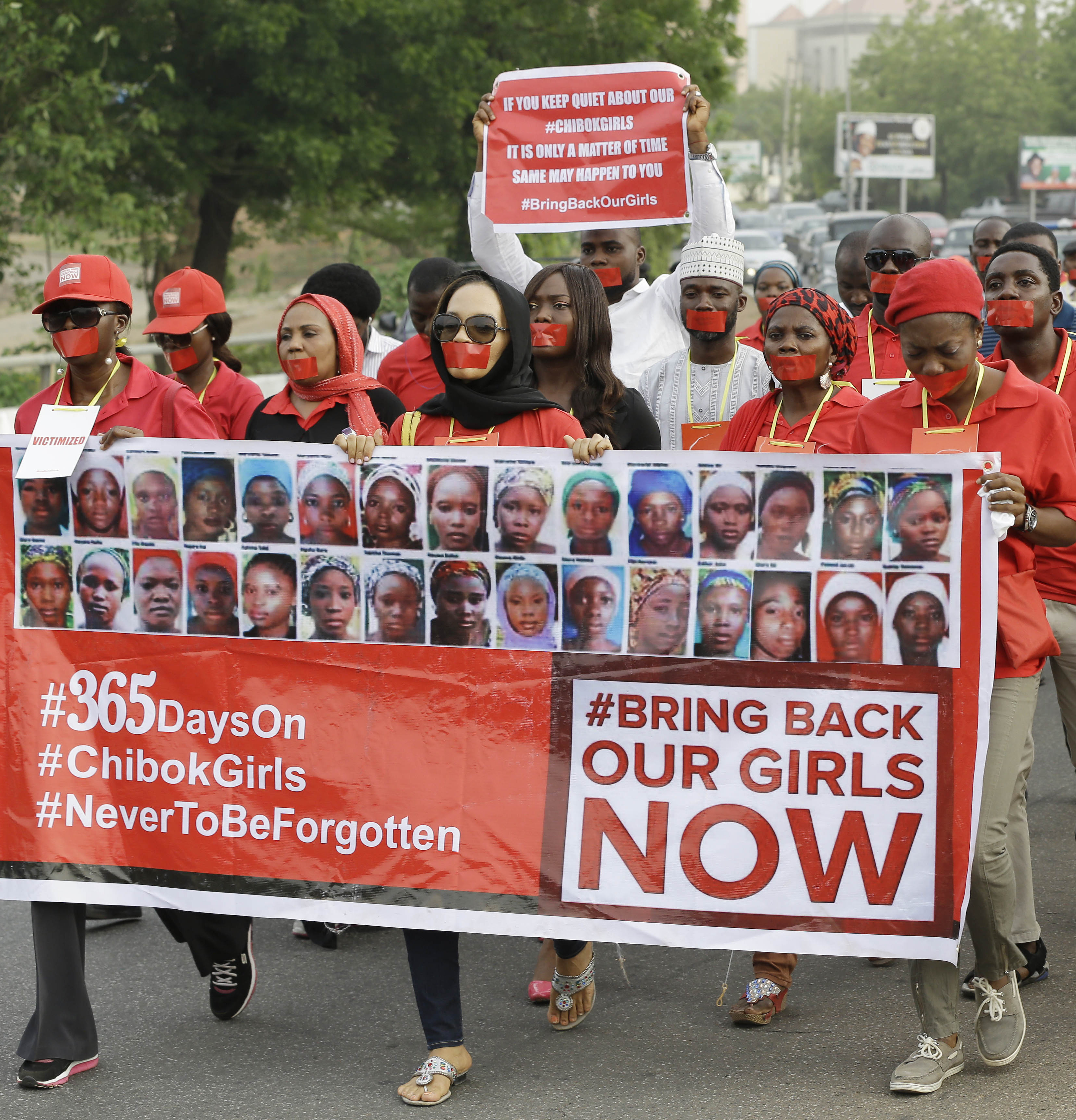Nigeria marks anniversary of Boko Haram schoolgirl kidnappings
Nigeria and the world on Tuesday marked the first anniversary of Boko Haram’s abduction of 219 schoolgirls, with protest marches, candlelight vigils and pledges of solidarity. But as the teenagers entered their second year of captivity at the hands of the Islamist militants, Nigeria’s incoming president said he could give no guarantees about their safe return. Since the kidnapping, the location of the Chibok girls has mostly remained a mystery. While being transported to the Sambisa Forest, a few dozen of the girls managed to escape their captors. Others have reportedly seen groups of the victims from time to time, raising the possibility that the girls were separated and taken across the border to neighboring Chad and Cameroon.
We do not know if the Chibok girls can be rescued. Their whereabouts remain unknown. As much as I wish to, I cannot promise that we can find them.
President-Elect Muhammadu Buhari
The event sparked global outrage, and that was fanned by the hashtag #BringBackOurGirls. On the one-year anniversary of the kidnapping, some are asking whether social media activism has had any positive impact on the search for the girls. Hauwa Biu, a women’s rights activist and professor in Nigeria, said that the hashtag represents the positive aspect of spreading awareness but unfortunately fails to achieve peace or action in the area. Women are still being abducted by Boko Haram. The problem is much larger than Chibok, however. Young men and boys have also been kidnapped, forced to join Boko Haram or killed for resisting. Fifteen thousand people have died in violence related to the group’s insurgency since 2009.
The Chibok girls were just one group of many, many others who have been kidnapped since last year. I cannot say that the #BringBackOurGirls campaign has made women and young girls in the northeast feel any safer.
Hauwa Biu, a women’s rights activist and professor in Maiduguri, Nigeria

World bringbackourgirls